The recent announcement by Turkey of a new vision for the Middle East to be built upon a burgeoning alliance with Egypt raises the question of whether such a partnership could be realistic in the years ahead. Turkey’s desire for such a partnership was evident in the bold description provided last weekend by Foreign Minister Ahmet Davutoglu, who called for an “axis of democracy” anchored upon the region’s two biggest nations. However, the extent to which Egypt may be willing to embrace such an alliance is far from certain, says Michele Dunne, director of the Atlantic Council’s Rafik Hariri Center […]
Latest Archive
Free Newsletter
Indian and Mongolian troops are currently holding a two-week military exercise in Mongolia, following a visit by the Indian army chief to the Central Asian country. In an email interview, Sharad K. Soni, an assistant professor of Mongolian and Central Asian studies at the School of International Studies at Jawaharlal Nehru University, discussed India-Mongolia relations. WPR: What is the recent history of India-Mongolia relations? Sharad K. Soni: The two countries, known as “spiritual” neighbors, have been in close contact not only on the basis of their historical relationship, but also on the basis of post-Cold War realities. The Treaty of […]

Ten years ago, the concept of “network-centric warfare” dominated U.S. military thinking and deployment. An outgrowth of work associated with the Revolution in Military Affairs, network-centric warfare envisioned a battle space in which information dominance and standoff killing power gave the U.S. military supremacy across the combat spectrum. Influential in doctrine and acquisitions, network-centric warfare offered the tempting promise of eliminating Carl von Clausewitz’ fog of war, making the battlefield legible and, for well-prepared U.S. forces, malleable. Platforms such as the Navy’s Littoral Combat Ship and DDG-1000, the Army’s Future Combat System, and the F-35 multirole combat aircraft were envisioned […]
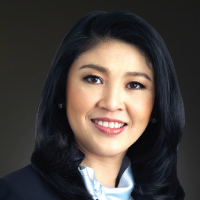
This is the second of a two-part series examining the policies and political challenges facing the new government of Thai Prime Minister Yingluck Shinawatra. Part I examined domestic issues. Part II examines foreign policy and the implications for regional stability. With its domestic opponents watching closely for missteps, the government of Thailand’s recently elected prime minister, Yingluck Shinawatra, will have to tread extremely carefully in matters of foreign policy. The mishandling of relations with Cambodia by the administration of Yingluck’s predecessor, former Prime Minister Abhisit Vejjajiva, had resulted in border skirmishes that killed 28 people this year alone. Yingluck’s Pheu […]
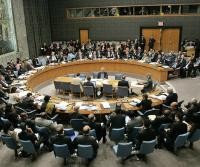
This Thursday, the United Nations Security Council will hold a special session on preventive diplomacy — the art of averting imminent wars, coups and massacres. The event will be attended by heads of state and foreign ministers, currently gathering in New York for the annual opening of the General Assembly. Their minds will almost certainly be elsewhere, as the Palestinian drive for recognition as a state is completely dominating U.N. diplomacy. So the Security Council session is unlikely to generate anything more than well-aged truisms: Prevention is better than reaction; diplomacy is better than force, and so on. Nevertheless, even […]
The war in Libya and the recently increased activities of three Africa-based Islamist groups have raised questions about whether Africom — the U.S. military command created to oversee U.S. military operations in Africa — may be shifting from its initial posture of projecting soft power to one of managing a hot theater. However, according to Jennifer G. Cooke, who directs the Africa Program at the Center for Strategic International Studies in Washington, while Africom’s public affairs posture may now be in flux, the command’s core mission of growing African capabilities to meet African security challenges has not changed. Cooke reminded […]
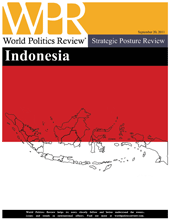
An archipelago of 17,000 islands stretching 3,000 miles from east to west, Indonesia sits astride some of the world’s most important sea lanes of communication. Its 240 million people make it the world’s fourth-most-populous state and third-largest democracy, and with 88 percent of its population Muslim, Indonesia is home to the world’s largest Muslim community. Indonesians believe that their country’s size, strategic location and domestic achievements entitle it to a leadership role in global affairs, and that case is strengthened by the country’s experience with various transnational threats: Indonesia faces homegrown and transnational terrorism, is the world’s fourth-largest emitter of […]
British Prime Minister David Cameron visited Moscow last week, where he met with Russian President, Dmitry Medvedev and Prime Minister Vladimir Putin. In an email interview, Edwin Bacon, a reader in comparative politics at the University of London, Birkbeck, discussed U.K.-Russia relations. WPR: What has been the nature of U.K.-Russian trade and diplomatic relations from the post-Cold War period until today? Edwin Bacon: In the immediate post-Cold War years, U.K.-Russian relations flourished, marked by reciprocal state visits in 1994 and 2003. When Vladimir Putin became Russia’s president in 2000, he singled out the U.K. as a key European partner. The […]

Editor’s note: This is the first of a two-part series examining the policies and political challenges facing the new government of Thai Prime Minister Yingluck Shinawatra. Part I examines domestic issues. Part II will examine foreign policy and the implications for regional stability. CHIANG MAI — Weeks into Yingluck Shinawatra’s term as Thailand’s first female prime minister, the streets of Bangkok are so far free of the protests that have indelibly marked recent years of Thai political life. But that could change. Yingluck’s government faces formidable challenges in implementing the ambitious platform that brought her Pheu Thai Party a sweeping […]
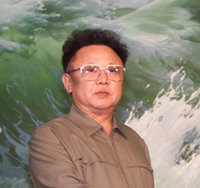
Last week, WPR’s Judah Grunstein noted some interesting developments in Russia-Korea relations. These included North Korean leader Kim Jong Il’s conferring with President Dmitry Medvedev and other Russian leaders in a rare visit to Russia in August; the signing of a Memorandum of Understanding regarding construction of a gas pipeline connecting Russia to South Korea via North Korea; the launching of a rail link between Russia and the North Korean port of Rajin; and plans to conduct a joint maritime search-and-rescue exercise in 2012. These developments have highlighted Moscow’s desire to play a major role in the future of the […]
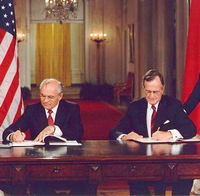
Thanks to the Sept. 11 terrorist attacks and the wars they spawned, many people around the world think they’re living through the most dangerous, violent and strategically uncertain period in human history. Well, that simply isn’t true, as the most recent Human Security Report from Canada’s Simon Fraser University makes clear. Entitled, “The Causes of Peace and the Shrinking Costs of War,” the 2009-2010 edition of the annual report marshals a ton of solid data that proves our world is less violent than ever and that it has “become far less insecure over the past 20 years.” The major failing […]
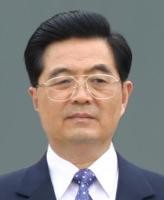
BEIJING — Hamstrung by domestic sensitivities and an inadequate institutional framework for managing its proliferating overseas interests, China has found itself behind the curve on Libya. Beijing’s response has revealed the disparate interest groups within its foreign policy apparatus and the challenges it faces when responding to international events. Despite previous progress, China’s foreign policy apparatus needs to become more adroit at public positioning and more discrete and institutionally consistent in its private diplomacy to secure its international rise. Last Monday,* Beijing became the last major economic power to recognize Libya’s National Transitional Council (NTC), 10 days after Russia did […]
The Turkish navy recently increased its patrols in the Mediterranean, against the backdrop of rising tension with Israel. In an email interview, Bill Park, a senior lecturer in the department of defense studies at King’s College London, discussed the Turkish navy. WPR: What is the current state of the Turkish navy? Bill Park: The manpower strength of the Turkish navy stands at around 55,000, about half of whom are conscripts. At root it is configured as a coastal defense navy, and as such possesses 14 submarines and numerous fast-attack vessels, mine-warfare craft and coastal-patrol vessels. It also has in excess […]
It looks like North Korean leader Kim Jong Il’s August meeting with Russian President Dmitry Medvedev was a productive one. This week has seen the announcement of a number of modest but significant initiatives with the potential to create lasting ties between the two countries. Most important is the signing of a Memorandum of Understanding between Gazprom and the North Korean Oil Ministry for the construction of a gas pipeline linking Russian supplies to South Korea. (Separate but coordinated discussions were held with the head of South Korea’s state-run gas company as well.) Also, a rail link between a Russian […]
